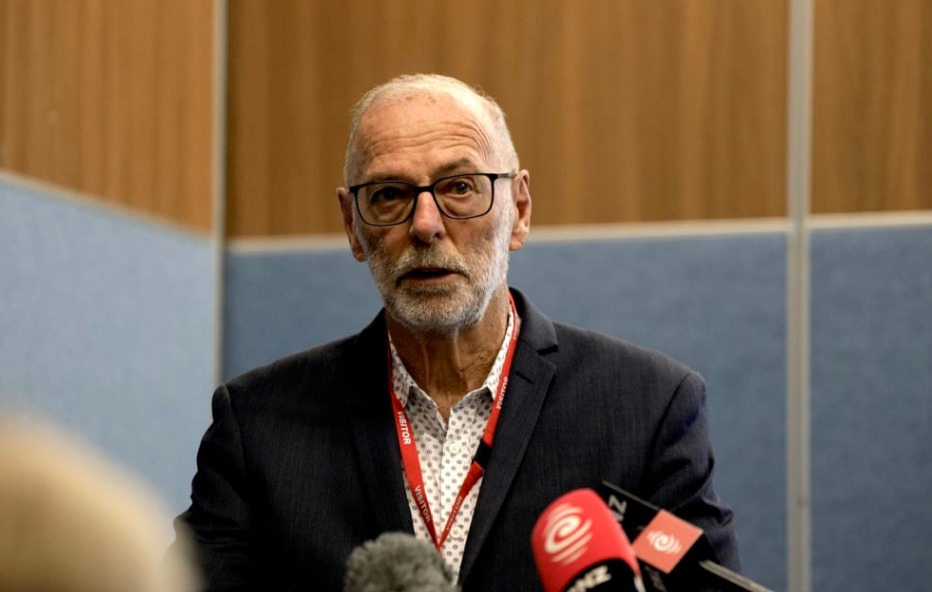
In an appearance at Auckland Transport's Viaduct headquarters today, Brown took time out of pitching his plan to sell the city's holdings in Auckland Airport to complain about road cones, his "not financially literate" councillors and target the "nasty" media.
Brown's team invited journalists from only a few organisations to the announcement. RNZ was allowed in, but Stuff, TVNZ and Newshub were not. Stuff reported amongst those allowed in were "business leaders, former politicians and former rugby league coach Sir Graham Lowe".
Some reporters threatened to walk out of the event in protest, drawing this response from the mayor: "They weren't invited, but some of the media have been pretty nasty. We did invite media who are sensible; and the media who are not weren't invited, and have now decided, some of them, to bugger off - well, that's all right with me".

Media Freedom Council chair Richard Sutherland - also head of news at RNZ - wrote to Brown shortly afterwards to "express our deep concern about the attempted exclusion of journalists from today's budget presentation in Auckland".
In addition to RNZ, the council represents Newshub, Newsroom, NZME, Stuff, The Spinoff and TVNZ.
"Today's events are troubling. The media plays a crucial role in informing the public and holding officials accountable. Denying access to journalists compromises the public's right to be informed.
"Furthermore, we are aware that invitations that were issued were selectively targeted to specific journalists. It is imperative to ensure equal opportunities for all bone fide journalists to cover significant public events, irrespective of their perceived affiliations or perspectives.
"To be blunt, it's unacceptable to cherry-pick journalists based on who you think will give you the easiest ride."
Sutherland called Brown's decision an "affront to the democratic process and an insult to voters".
The mayor did not take questions after his speech, saying he did not have time.
Brown has had a strained relationship with the media since taking the mayoral chains last year. In April, Mediawatch described it as "frosty", at best.
In January as Auckland suffered its worst floods in living memory, he called journalists "drongos" in messages to friends, upset that he had to cancel a tennis engagement to deal with the media. He later apologised.
He refused 106 media requests in his first month of office, granting only two.
'Sell them all'
The guts of Brown's speech was to convince his councillors that selling the city's 18 percent stake in Auckland Airport was the only way to avoid massive cuts to services and rate hikes.
He has his deputy Desley Simpson on-side. She told RNZ's Midday Report programme today she did not want to sell the shares at first, but has listened to advice and been convinced.
She said the mayor's second budget proposal was as good as it was going to get, and hoped other councillors agreed to it.
"In my heart, I didn't want to sell the airport shareholding. But professional staff advice has said 'sell them all'. And you know, that's a hard pill to swallow when in your heart, you want to keep them. It's an emotional wrestle that I think a lot of people are struggling with."
Simpson said selling shareholding was not just a short-term fix, and would save the council $100 million a year in debt interest.
The council's debt is currently more than $11 billion.













